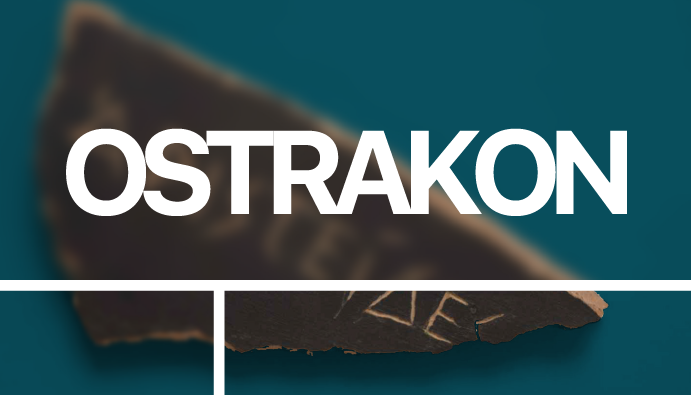Ostrakon
Ostrakon – a small shard of broken pottery or stone used as a durable and convenient medium for writing scratched into the surface. Bound up with the notion of exile through its use in the voting process for ostracism in Ancient Greece, the Ostrakon captures the spirit of this new imprint. With the more ephemeral notions of the chapbook or pamphlet in mind, Ostrakon welcomes multi- and interdisciplinary work, which explores and develops themes broadly related to mass mobility, forced displacement and exile brought about through conflict, climate change, and authoritarianism. Ostrakon welcomes contributions from a wide range of authors and artists that move beyond conventional scholarly presentational forms to alternative modes of creative and multimedia work. The intention is to attract both scholarly and general readers concerned about human rights, social justice, and the future of the planet and its inhabitants. Academic submissions will undergo a peer review process. Submissions in English and German are considered with a maximum limit of 25,000 words. Ostrakon will be published in both hard copy and online.
Referred to in the ancient sources as a just and honorable man, Aristeides was nonetheless ostracized. At the behest of an illiterate voter who said he was tired of hearing Aristeides constantly referred to as ʻthe Just’, Aristeides wrote his own name onto an Ostrakon and took leave of the city (Plutarch. Life of Aristeides, VII, 5–6).
Academy in Exile
Academy in Exile offers scholars, journalists, and cultural producers who are threatened because of their academic or civic engagement in human rights, peace, and democracy, the opportunity to resume their work in Germany. A consortium of the Universität Duisburg-Essen, Kulturwissenschaftliches Institut, Forum Transregionale Studien, and Freie Universität Berlin, AiE is funded by the Volkswagen Foundation, Mellon Foundation, Freudenberg Foundation, IIE-Scholar Rescue Fund, DAAD, Allianz Kulturstiftung, and Open Society Foundations.
With the support of its consortium partners, AiE has, since its inception in 2017, generated long-term fellowships, bridge stipends, and guest professorships. Academy in Exile’s offerings include the critical thinking residency program, a tandem-teaching initiative, Afghanistan fellowship program, artist-in-residence program, publishing initiatives, public events, conferences, and outreach. These provide a space for reinvigorating the historically-inscribed principles of freedom of teaching and research.

